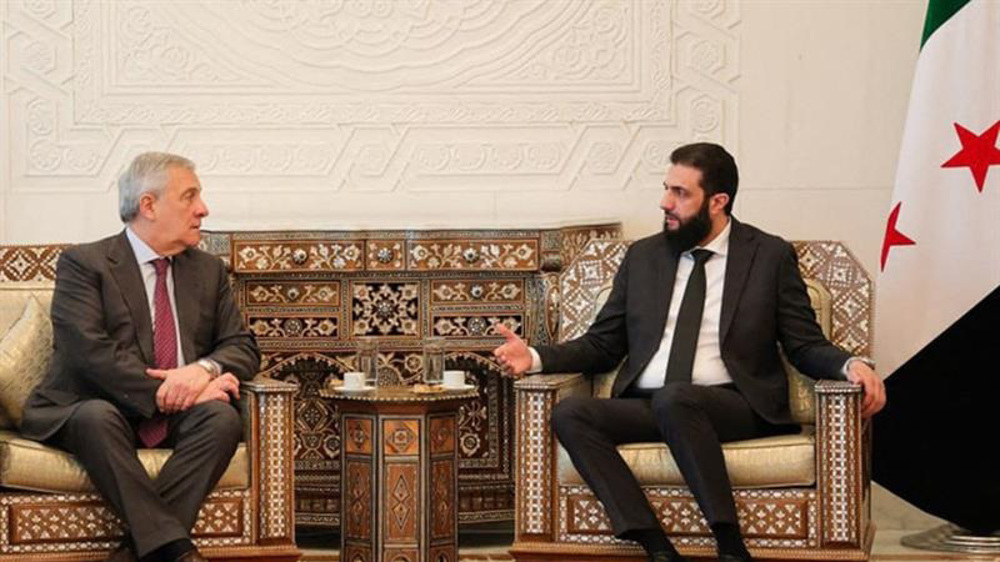Greece reaches deal with creditors: Government source
A Greek government source reportedly says Athens has finally reached an agreement with its international creditors over a multi-billion-dollar bailout package for the debt-ridden country.
An unnamed Greek government source said on Tuesday that the bailout, worth EUR 86 billion (USD 93 billion), had been reached after 23 hours of talks in the capital, Athens.
Finance Minister Euclid Tsakalotos also told reporters that “one or two” remaining details of the deal were expected to be worked out during the day.
Reports say Greek Prime Minister Alexis Tsipras has discussed the accord with German Chancellor Angela Merkel, French President Francois Hollande, European Commission chief Jean-Claude Juncker and European Parliament chairman Martin Schultz.
The deal is expected to be submitted to the Greek parliament for a vote, which is most likely to be held on Thursday. Eurozone finance ministers could also be asked to approve it on Friday.
The agreement comes shortly after Athens reached a deal on fiscal targets for the next three years with its international creditors – the International Monetary Fund (IMF), the European Central Bank (ECB) and the European Commission.
Earlier in the day, Athens agreed to a surplus of 0.5 percent next year, 1.75 percent for 2017 and 3.5 percent in 2018.

An ongoing crisis
Meanwhile, in a Tuesday interview with Press TV, London-based economist Marco Pietropoli described the recent agreement as being “just another chapter” in the ongoing Greek financial crisis, rather than a “turning point” in the situation.
“Further austerity has really made the situation worse in Greece, and is it very much like kicking people when they are down,” Pietropoli said, adding, “What Greece is effectively doing is accumulating debt and being totally subservient to the European Union.”
Greece and its lenders have been holding marathon negotiations over the finalization of a list of reforms and austerity measures demanded by the creditors in order for Athens to receive the package.
Athens needed to receive the bailout in order to repay EUR 3.4 billion (USD 3.7 billion) to the ECB by an August 20 deadline.
Tsipras rose to power early this year on a platform of opposing the tough austerity measures that the country’s creditors imposed in exchange for previous bailouts. In June, he even called a referendum to have Greek people directly state their opinion on whether a proposed package would have to be accepted by the government or not.
While he urged a ‘no’ vote, and got it, too, Tsipras ultimately accepted the reforms demanded by the international lenders, sending a wave of shock and confusion to the people.
Tsipras has now promised to cut the lawmakers’ tax breaks and the ministers’ salaries in a move to ease domestic tensions triggered by his decision to raise taxes, overhaul the pension system and carry out privatizations as parts of the austerity measures.
Athens has received two bailout packages worth a total of EUR 240 billion (USD 272 billion) over the past five years.
Yemeni drones hit targets in Israel-occupied Yaffa
VIDEO | Is the worst yet to come?
ICC prosecutor pushes rejection of appeal on Netanyahu arrest warrant
Iran’s exports to Russia up 14% y/y in 9 months to late Dec.
IRCS: US willing to accept Iran’s financial aid instead of human resources
Iran raises its gasoline output by nearly 10% in just 3 months
VIDEO | Biden’s legacy in West Asia
South Korea says North launched several missiles off east coast










 This makes it easy to access the Press TV website
This makes it easy to access the Press TV website